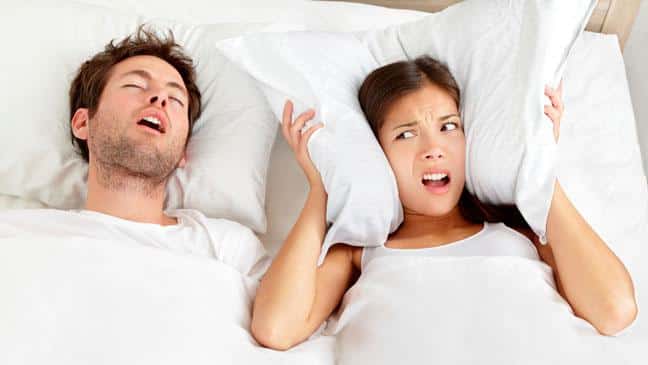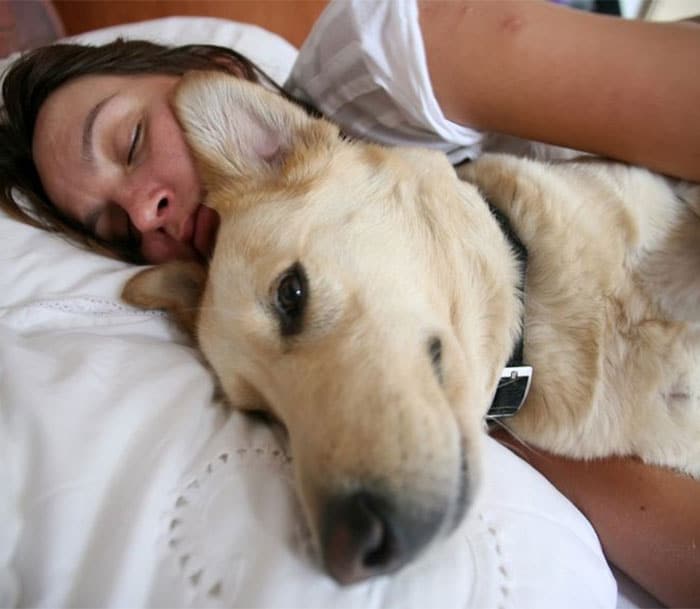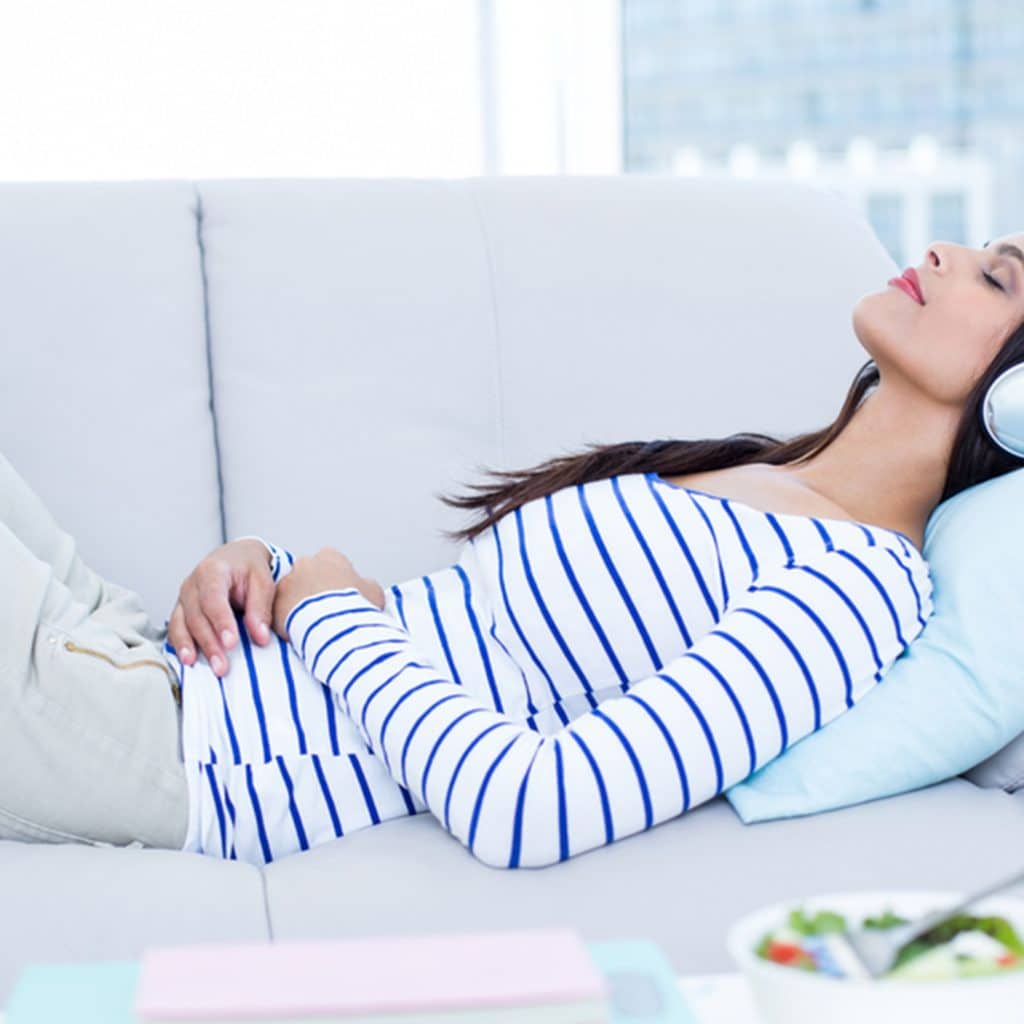Whether you’re just trying to make sure you get the eight hours of sleep that health experts recommend, or you’ve been struggling with insomnia night after night, wanting to get to sleep faster is a struggle for most Americans. Laying in bed and staring at the ceiling or tossing and turning can feel like torture, and can turn into an endless cycle of exhausted days and frustrating nights.
If you want to be able to get to sleep faster, the first thing you need to do is to learn what you can about why we sleep and the different things that can be keeping you from falling asleep. After you understand what your particular issue is, you’ll be much better equipped to choose the best way of getting to sleep faster for you.
Why Do We Sleep, and Why Should You Want a Quick Way to Fall Asleep?
There once was a time when sleep was viewed as the way that the gods sent important messages to human beings through their dreams. This theory was replaced by physicians believing that sleep was caused by fumes rising from the stomach each night. Over the last few centuries we have arrived at a much more accurate view of what makes us sleep and why we need it, but our understanding still has a long way to go. One of the biggest areas of study is how to help people to fall asleep faster.
Sleep research is one of the newest areas of modern medicine, and scientists are learning more each day. One thing that is clear is that when we don’t fall asleep fast enough to allow us to get the 8 hours we need, we suffer emotionally and physically. You already know that when you don’t get enough sleep you wake up grumpy. But there are also serious physical effects that come with sleep deprivation. Some of the harmful impacts of not getting enough sleep include:
- If you don’t fall asleep fast, you are more likely to get into or to cause an accident. According to the National Highway Traffic Safety Administration, fatigue is behind 100,000 car crashes each year. Over 1,500 of those crashes result in death. And history shows us that some of the world’s most troubling accidents have been linked to lack of sleep, including the nuclear accidents at Three Mile Island and Chernobyl and the crash of the Exxon Valdez.
- You are more likely to be hurt on the job when you don’t fall asleep fast enough. Many work-related accidents and injuries are linked to being sleepy and not getting enough sleep the night before. People are also more likely to call in sick because they couldn’t fall asleep.
- When you can’t fall asleep, you end up losing memories and the ability to think clearly. Studies have shown that we remember things better when we get enough sleep. We also score better on tests that require concentration and problem solving.
- The inability to fall asleep has been linked to many health problems including:
- Cardiac problems
- High blood pressure
- Risk of stroke
- Diabetes
- When you can’t fall asleep, you end up losing interest in sex. This may e caused by a drop in the level of testosterone. It can also be a simple matter of having less energy or of being depressed or anxious about the inability to fall asleep.
- Higher risk of depression. Lack of sleep has been directly linked to symptoms of depression and anxiety. The big problem with this is that it creates a cycle, as people who are depressed or anxious generally have a harder time falling asleep.
- When you can’t fall asleep, it ages your skin. People who are looking for ways to fall asleep faster often complain that their insomnia is making them look older. It can cause wrinkles and fine lines, and dark circles under the eyes. This is partly because the body makes more of the stress hormone cortisol when it doesn’t get enough sleep.
- When you can’t fall asleep, you run the risk of gaining more weight. Most people don’t realize that there is a direct link between lack of sleep and weight gain. There have been many studies that have shown that when you can’t fall asleep on a regular basis, you feel hungrier and crave more unhealthy foods. Your metabolism also can slow down.
- Lack of sleep has been linked to higher risk of death. Studies have shown that people who sleep less than five hours a night have twice the risk of death from all causes, and especially from heart disease. Being able to fall asleep faster helps to cut this risk.
When we can fall sleep fast and get enough sleep, we give our bodies the chance to recover from the day’s activities and repair any damage that’s been done to our cells. We give our immune system a boost and give our brains the chance to cement in memories of our day’s activities and lessons.
Things that Keep You from Falling Asleep
There are many different reasons why people struggle with falling asleep. Here are some of the most common, along with some answers that may work for you:
- You can’t stop thinking about things. When people talk about not being able to fall asleep, one of the biggest reasons is that their minds are whirling about problems at work, or with loved ones, or other problems. Sometimes it’s not a bad thing that you’re thinking about, but a good thing: maybe you’re excited about an upcoming event or a new love interest. Whatever you’re thinking about, you need to let it go so that you can fall asleep faster.
One solution to this problem is to get out of bed and go to another area of your home. Moving out of bed is usually enough to break your thought pattern. If it isn’t, then write down your problem or what you’re thinking about. Doing this usually lets you let go of the problem. Then you can go back to bed, and will likely find you’re able to fall asleep faster this time.
- You slept late in the morning. Your body is programmed to need a certain amount of sleep each night. If you get too much sleep the night before because you slept in, your body clock will be thrown off.
The solution to this one is pretty obvious. As much as you may enjoy sleeping late, you need to make sure that you don’t stay in bed more than one hour past your normal waking time. When you do this, you’ll find that you’re able to fall asleep faster the next night.
- Your bed partner snores. Snoring by a bed partner is a big problem. It can ruin your ability to fall asleep and make for a terrible next day.

There are a number of solutions for snoring. One of the best is to ask your bed partner to sleep on their back with their head raised on a pillow. They can also use special nose strips that help to open their air passages. If your partner’s snoring is really disruptive, you may want to ask them to see a physician. Sleep apnea is a serious medical condition that often goes undiagnosed, and snoring is one of its biggest symptoms.
- Changing hormones can impact your ability to fall asleep. This is an especially big problem for women. Depending on your age or the time of the month, your levels of estrogen and progesterone can rise and fall, and this can lead to not being able to fall asleep.
One of the best ways to help you get to sleep faster when your hormones are fluctuating is to take a relaxing hot bath a couple of hours before bed time. Other solutions are to make sure that the temperature in your room is set to a cool temperature. If natural remedies fail, you may want to talk to your doctor about hormone therapy.
- Going to bed hungry can make it hard to fall asleep. Whether you simply forgot to eat, didn’t eat enough, or are purposely cutting back on food, a growling stomach can really interfere with your ability to fall asleep.
If hunger is keeping you up at night, you’ll find you can fall asleep faster by eating a smart snack before bed. A spoonful of peanut butter, a slice of cheese or a cup of low-fat yogurt can go a long way to helping you get the sleep you need while still sticking to your diet.
- Your sleep hygiene is a mess. If you’re not familiar with the term “sleep hygiene,” it has to do with the environment in which you’re going to bed. If your bedroom is a mess, your room isn’t dark, and your bed isn’t comfortable, you are working against your ability to fall asleep fast.
There are many solutions to problems with sleep hygiene. The first starts with cleaning your room before you go to sleep. When things are out of order, it has an impact on your ability to relax. Also, check your bedroom’s temperature to make sure that it is nice and cool. Take measures to make sure that there is no disruptive noise or light entering your room. Invest in comfortable sheets and pajamas. All of these steps can help you to fall asleep faster.
- Your room is too quiet. This may sound funny, but if your room is too quiet it can actually stand in the way of your ability to fall asleep.
The best solution to too much quiet is to get some kind of white noise into your bedroom. Something as simple as a room fan can often work well. There are also white noise machines that are available to help you get to sleep faster, and apps that you can download onto your phone that provide you with a variety of sounds. These can include everything from static to the sounds of rain or ocean waves.
- You sleep with your pet. We all love our pets, but study after study has shown that sleeping with your dog(s) or cat(s) or both can really hurt your ability to fall asleep.
The obvious solution to this problem is to keep your pet out of your room entirely, but that doesn’t always work. If you must share your space with your dog, get them their own bed and put it next to your own. Cats are harder to keep away. Try closing the door, and if you must, try putting the cat into another room for the night.

Natural Ways to Fall Asleep Faster
There are a lot of sleep aids available on the market, but natural ways to fall asleep faster are generally healthiest and more effective. Here are some of our favorites:
-
Try not to fall asleep
This sounds funny, but our rains are funny things. If you want to get to sleep faster, when you go to bed try telling yourself that you absolutely have to stay awake. A study done at the University of Glasgow showed that people who tried this trick were able to fall asleep much more easily.
-
Get out of bed
Sleep researchers all agree that when you can’t fall asleep, the worst thing you can do is to lie there in your bed. Doing so can create an association that will make it harder to fall asleep in the future. When you can’t sleep, take yourself away from your bed and go do another activity. Read, iron, or do some other small task, but don’t get on the computer, your phone or any other electronic. This can work against your ability to fall asleep. After about 15 minutes, go back to bed. You should find yourself able to get to sleep faster.
-
Turn down the heat
Our bodies are programmed to sleep better in cooler temperatures. Check the thermostat. The National Sleep Foundation says that your bedroom should be set between 60 and 67 degrees in order to get to sleep faster. You can improve this process and make it even more effective by taking a warm bath or shower before you go to bed. Though some people think it is the bath that does the trick, it’s actually the drop in temperature from the warm to the cool bedroom that makes you feel sleepier.
-
Go to bed at the same time every night
Remember when you were a little kid and you had a bedtime? You never had trouble falling asleep then. That’s partly because your body expected to go to bed at that time each night. The same trick works now, when you’re an adult. The more you have a set routine, the more your brain will recognize the cues that you give it as the signal to get sleepy and fall asleep fast.
-
Wear socks to bed
No, really. There have been studies that showed that when your hands and feet are warm, you are able to fall asleep faster. It has to do with the fact that when your extremities are warm, the body doesn’t have to keep itself as warm, and can let its temperature all to the point where you fall asleep faster.
- Try the 4-7-8 breathing techniqueThis proven method of getting to sleep faster can have you snoozing in less than a minute once you learn how to do it. Start by putting the tip of your tongue just behind your upper front teeth. It stays there through the whole exercise. Now let your breath out completely through your mouth, then inhale through your nose to a count of 4. Hold your breath for a count of 7, then exhale through your mouth to a count of 8. Do this three times for a total of four breaths.
-
Try aromatherapy
The smell of lavender or chamomile have both been shown to help you relax and fall asleep faster. Try putting a few drops of one of these essential oils on your pillow. Another method is to put a few drops of essential oil into a bowl of steaming hot water and then inhale the steam for a few minutes 10 minutes before going to bed.
-
Listen to relaxing music
Ever wonder whether lullabies really work? It turns out that they do! Music that has a slow beat has been shown to help people fall asleep faster. Try listening to classical music.
-
Dim the lights
We all know that we should sleep in a darkened room, but did you know that if you dim the lights for about two hours before you go to sleep it can help you fall asleep faster? The other thing you can do is cut out all electronics for at least two hours before you go to bed. The light that emits from your phone, tablet or laptop is a special type of ray that actually keeps you from falling asleep.











